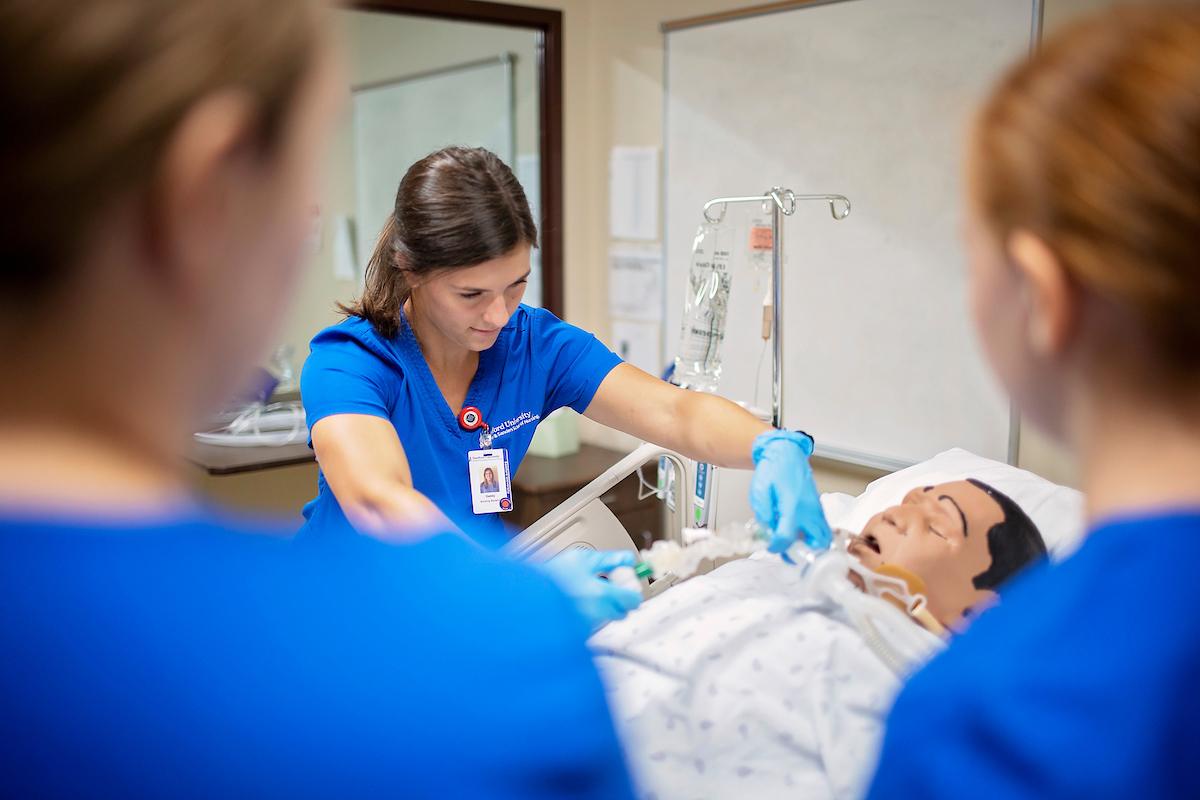
According to the Alabama Department of Labor, the number of online job advertisements in Alabama was up 48% in February 2022 as compared to February 2021. One of the five occupations for which the most ads were posted was registered nurses. The top two employers represented acute care settings and were responsible for posting over 3000 jobs.
The workforce decreased by 25% during the COVID-19 pandemic, and hospitals remain seriously understaffed in nursing. But the pandemic isn’t entirely to blame. Burnout, increased workloads (due to staff shortages) and other factors came into play long before COVID became a household word.
But a new program at Samford, made possible by a $1,050,000 grant supported by the Health Resources and Services Administration of the U.S. Department of Health and Human Services, seeks to alleviate the problem.
The Nurse Education, Practice, Quality and Retention (NEPQR) – Registered Nurse Training Program (RNTP) is designed to equip new graduate nurses with the clinical and professional confidence to work as integral members of the health care system and use their expanded skills to reduce health disparities in acute settings.
“The program will benefit students from underrepresented groups in nursing, as well as their patients, families and communities,” said Stephanie Wynn, associate dean for scholarly activity, who serves as director and grant manager for the project.
“Funding will be used to establish a replicable collaborative team-based care model that aims to increase the number of diverse students trained to care for medically underserved patients in acute care settings. Filling positions in acute care settings with local qualified registered nurses is necessary to support the health care of underserved populations throughout the state.”
According to assistant professor Betty Key, coordinator of the NEPQR-RNTP project, students in their junior year who meet the criteria as underrepresented in nursing will have the opportunity to apply for the program.
“Today’s newly graduated nurses are expected to perform at the near competent level, rather than at the novice level from previous years,” she said. “Many hospitals have implemented nurse residency programs as a strategy to improve clinical competency; however, this opportunity is post-graduation.”
The Moffett & Sanders School of Nursing’s NEPQR-RNTP will strengthen the capacity and skillset of nursing students during their undergraduate program. New graduate nurses will be prepared to improve health outcomes by providing high-quality and culturally sensitive care in underserved communities.
This project is supported by the Health Resources and Services Administration (HRSA) of the U.S. Department of Health and Human Services (HHS) under grant number US6HP47227 and title Nurse Education Practice Quality and Retention ‐ Registered Nurse Training Program for $1,050,000. This information or content and conclusions are those of the author and should not be construed as the official position or policy of, nor should any endorsements be inferred by HRSA, HHS or the U.S. Government.
